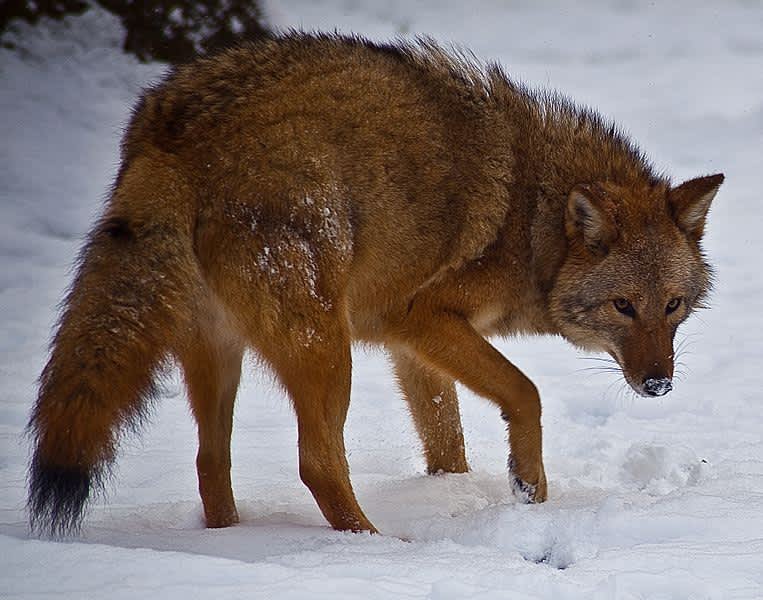Canadian Study Finds Coyotes Kill Adult Moose
OutdoorHub Reporters 10.24.13

Although they are smaller than wolves, coyotes are resourceful predators more than capable of bringing down adult deer and even elk. Hunters have long suspected that coyotes could even target moose, but the significant difference between the animals’ respective sizes made the situation seem implausible. These suspicions have now been confirmed by a study in Ontario, Canada in which researchers found that not only do coyotes kill adult moose, they do so consistently.
According to phys.org, the study was conducted by Dr. John Benson of Trent University and Dr. Brent Patterson of the Ontario Ministry of Natural Resources. The researchers used collared animals to keep track of a number of coyote bands near Algonquin Park, which were comprised of Eastern coyotes and coyote-wolf hybrids.
“It has been widely assumed that coyotes […] are incapable of killing adult moose […] and previous studies of coyote predation support this assumption. However, eastern coyotes and eastern coyote × eastern wolf […] are larger than western coyotes and appear to rely on larger prey in some areas,” the authors wrote in the study, which has since been published in the Canadian Journal of Zoology.
The Eastern coyote is significantly larger than its Western cousin, which is usually attributed to its wolf ancestry. Eastern coyotes can be found in New England and eastern parts of Canada, appearing in larger numbers after the decline of the grey wolf in those territories. Since they are larger and require more calories to get through the Northeastern winter, Eastern coyotes often target larger prey. Along with deer and elk, moose are also apparently on the dinner menu.
“Sure enough, it wasn’t really common but we were able to document some cases,” Benson told the Ottawa Citizen.
In the study, Benson and Patterson found that four of the packs they had been following did indeed kill and consume adult moose. Each band of coyotes only had two to five members, but the predators held the hunt on their own terms.
“Coyotes and coyote × wolf hybrids probably prey on moose opportunistically and only when circumstances are favorable. For instance, when snow is deep and a hard crust forms on top this impedes the ability of moose to travel and gives the lighter coyotes and hybrids an advantage because they can travel on top of the snow,” Benson explained. “Additionally, we noticed that some of the moose killed by coyotes and hybrids were on steep slopes that may have slowed the moose and created unstable footing. We also found that some of the moose were killed in areas where medium-sized trees were moderately dense, which may have prevented moose from swinging around quickly to fend off predators attacking from the rear or side.”
Attacking a moose presents a greater risk of injury, but the nutrition provided by a successful hunt could mean the difference between survival and starvation in winter. Benson said that coyotes can spend up to 18 days feeding off a moose carcass. All of the moose killed by coyotes during the study were older than one-and-a-half, the oldest being around 20 years old.
Researchers say that their work has met with surprise from other biologists, but it is unlikely for coyotes to have a large impact on moose populations. Still, the study provides proof that the Eastern coyote does have an impact on moose mortality.

